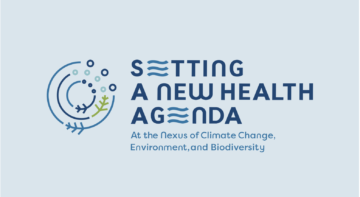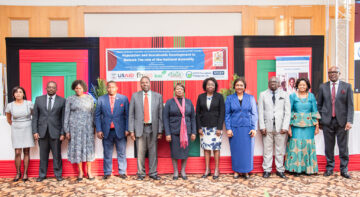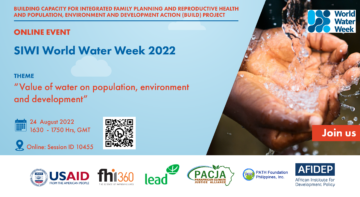Actualités

News Release
Nairobi – Unsafe abortion is a persistent problem in Sub-Saharan Africa. Roughly half of all abortions in the region qualify as “least safe,” which means that these procedures are performed by untrained persons using non-recommended methods.
In January 2021, the Guttmacher Institute released the first comprehensive compilation of evidence about abortion incidence and safety in Sub-Saharan Africa overall, as well as in each of its four subregions (Eastern Africa, Middle Africa, Southern Africa, and Western Africa).
In a report titled: From Unsafe to Safe Abortion in Sub-Saharan Africa: Slow but Steady Progress, the Guttmacher Institute provides an overview of the legality of abortion and describes how often and how safely abortions occur in the region’s 48 countries. It also offers an analysis of the underlying context of abortion—namely, unintended pregnancy and access to modern contraceptives.
The reports estimates that 89 % of unintended pregnancies in the region occur among women with unmet need for modern contraceptives. Such women either do not use contraceptive methods or use less effective methods, leading to unintended pregnancies that potentially end in unsafe abortions.
While evidence suggests that some progress has been made to reduce unsafe abortion, the pace has been less than satisfactory. To date, abortion is riskier in Sub-Saharan Africa than in any other world region. Between 2010 and 2014, 77% of abortions in the region were deemed to be unsafe, compared with the global average of 45%. Furthermore, as of 2019, Sub-Saharan Africa registered the highest abortion case-fatality rate of any region in the world.
The safety—but not the incidence—of abortion is directly related to the extent to which it is legally restricted. Abortions become unsafe when a lack of access to safe abortion services, often but not always determined by legal restrictions, forces women to obtain abortions in circumstances that present a risk to their health.
Moving from unsafe to safe abortion in Sub-Saharan Africa is possible; doing so, however, will require improving accessibility of modern contraceptives and scaling up provision of safe abortion and postabortion care services. Additionally, sustained collaboration from all stakeholders will be needed to expand the legality of abortion to at least the grounds in the African Union’s Maputo Protocol.
The report responds in part to the call in the Maputo Plan of Action (an international human rights instrument established by the African Union), to reduce the incidence of unsafe abortion by ‘compiling and disseminating data on the magnitude and consequences of unsafe abortion.’
**ends**
About Guttmacher Institute
The Guttmacher Institute is a leading research and policy organization committed to advancing sexual and reproductive health and rights in the United States and globally. The institute envisions a world in which all people are able to exercise their rights and responsibilities regarding sexual behavior and reproduction freely and with dignity.
About AFIDEP
AFIDEP aspires for an Africa where evidence transforms lives. AFIDEP works towards systemic actions that drive a cultural shift from low or sporadic evidence use to a setting where evidence is actively sought and used routinely in public policy decision-making so that the right investments are made towards the transformation of people’s lives for the better.
Access the full report HERE.
Related Posts





